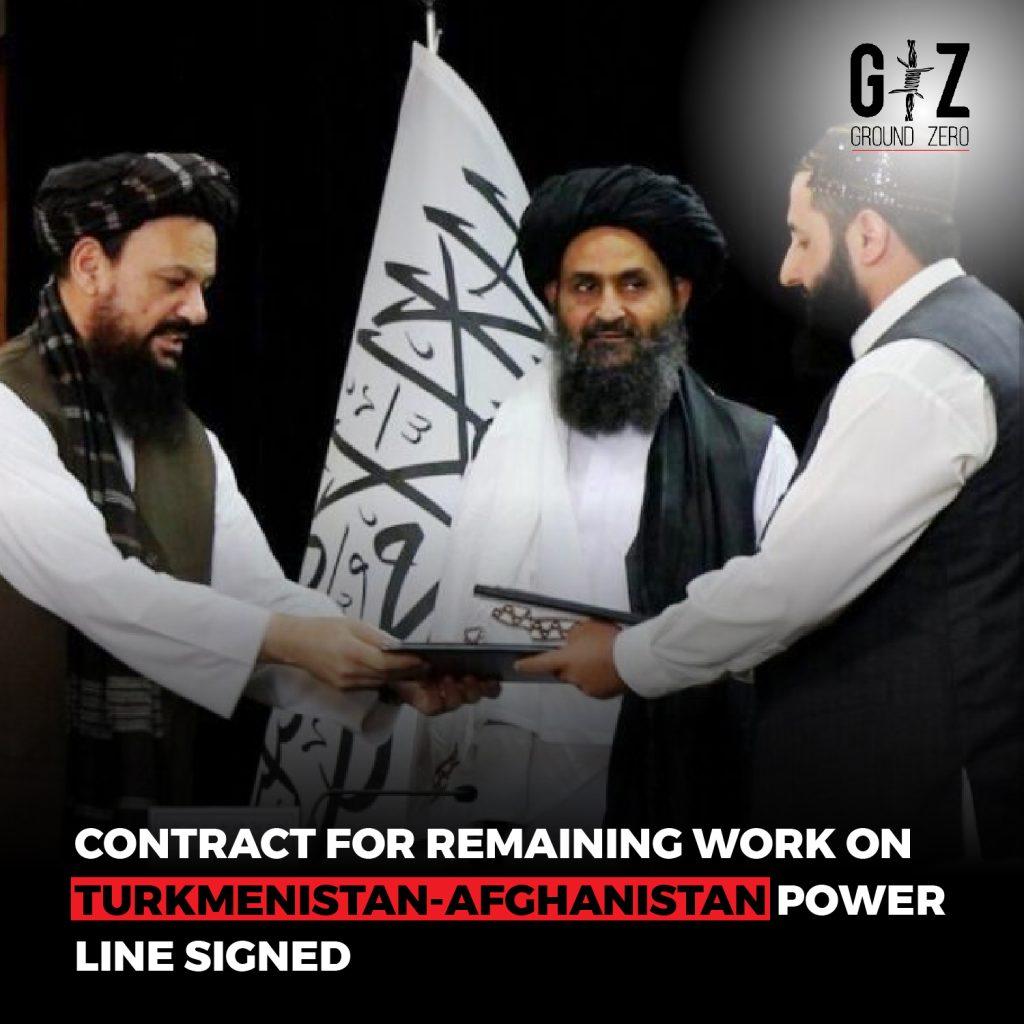A contract for the remaining work on a 500 KV power line beginning in Turkmenistan was signed with a domestic private business on October 7th.
Abdul Latif Mansour, the acting minister of energy and water, predicted that this project would be completed in two years and that its completion would satisfy the need for electricity among locals and business owners in Kabul and other provinces.
The contracting company is expected to invest $75,000,000 in this project when it is restarted after a two-year hiatus.
“With a domestic company’s investment, they will drag a 500 kV line over 128 kilometers from Dasht Alwan to Chowk Arghandi and from Dasht Alwan to Shabarghan; a contract has been signed with another company, which was announced a few days ago,” said Abdul Latif Mansour.
“Many of the project’s equipment has arrived in the area, a sizable portion of the work is advanced, and the remaining work on this project is about to start today,” said Farhad Mahmoudi, the head of energy programs at the MoEW.
According to Amanullah Ghalib, the former head of Breshna Sherkat, the private sector’s involvement in this project is a big move in the right direction for the country’s energy supply.
“The 500 KV project is one of the most significant infrastructure projects for Afghanistan’s electricity projects, and with the implementation of this project, all of the current issues with Afghanistan’s electricity that exist in the central, eastern, and southern provinces, including the capital, will be resolved,” Ghalib told.
According to economists, once this project is finished, the issues with the lack of energy in industrial factories in Kabul and many other provinces will be resolved.
“The industrial parks operating in Afghanistan face serious economic problems due to the lack of electricity, and with the completion of this project, most of the necessities will be met,” said Qutbuddin Yaqoobi, an economist.
The Asian Development Bank provided financial support for Turkmenistan’s 500 KV line project in 2016, but after the Islamic Emirate of Afghanistan was restored, the project’s progress and the bank’s financial support were halted.
After finishing the remaining work on this project from Sheberghan to Dasht Alwan and from there to the Arghandi region of Kabul, the Islamic Emirate would reimburse the investment business’s $75 million expenditures as well as any profits, according to the Ministry of Energy and Water.
Given that a contract for the final phase of the Turkmenistan-Afghanistan power line project has been formally signed, the future of Afghanistan’s energy sector appears bright. This momentous move demonstrates both nations’ dedication to boosting regional connectivity and economic growth.
It is the goal of the long-planned power line project to send electricity from Turkmenistan to Afghanistan. The contract’s signing will hasten the conclusion of the remaining work on the power line and advance the completion of this eagerly anticipated project.
The project entails more than just building a power line. The Noor-al-Jihad substation in western Afghanistan will be expanded, and its capacity will rise from 110 kV to 220 kV. A double-circuit power transmission line will also be built as part of the project, increasing its capacity and range.
Once finished, the power line will not only provide Afghanistan with dependable electricity but will also make a substantial contribution to the economic growth of the nation. Modern economies depend on reliable power to support the expansion of enterprises, industries, and infrastructure. With the completion of this project, Afghanistan will quickly enter a better and more affluent future.
The construction of the power line has advantages for the economy and for regional cooperation. Turkmenistan and Afghanistan working together to complete this project shows the two countries’ growing relationship. As a result, the project will improve regional connections, creating opportunities for additional collaboration in other industries.
Additionally, once this power line is operational, it might open the door for Afghanistan to develop as a regional center for energy transmission. This might draw more investments into the nation, starting a positive cycle of growth and prosperity.
The contract signing represents a significant turning point in the development of the Turkmenistan-Afghanistan power line project, as it puts the project closer to completion. The project’s actual effects, though, won’t be felt until it is operational and has changed Afghanistan’s energy environment and improved regional connectivity.
A new era of regional collaboration and prosperity might be ushered in by the successful completion of this project, which could also serve as an inspiration for similar efforts in the area. The success of one project can spark a thousand others, according to a regional development specialist who was quoted.


